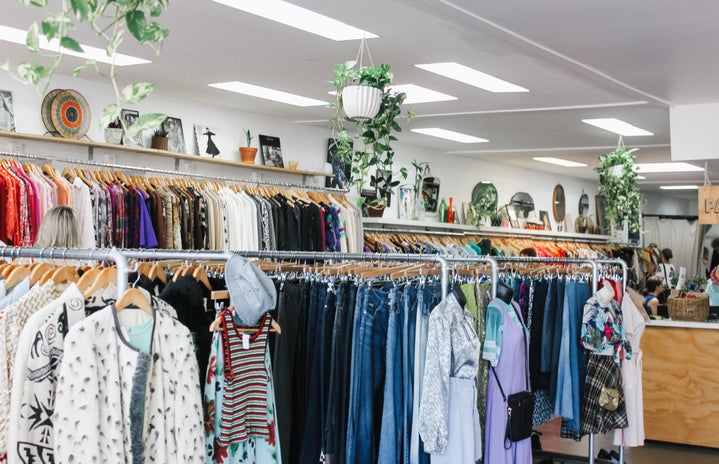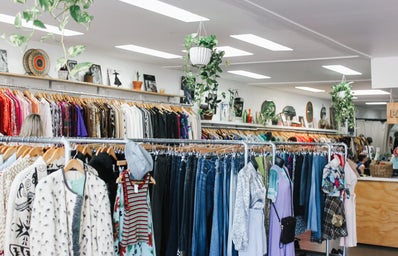During the pandemic and its aftermath, many people started new side-hustles to maintain their work-from-home lifestyles, one of which is fashion resale. There are two main sources of inventory used by fashion resale businesses: wholesalers and thrift shops. Like many other business decisions, finding an ethical and sustainable supply of inventory is not as easy as it may seem.
In the boutique business model, inventory is purchased from wholesalers and resold at a higher price. Wholesalers are individuals or companies that sell products in bulk to retail stores and boutique owners. Many popular fashion brands are considered boutiques, including Shein, Princess Polly, and Francesca’s. Since every boutique obtains inventory from different wholesalers, the ethics of an individual boutique are reliant on the practices of their wholesalers. For example, many of Shein’s wholesalers are factories that underpay and overwork their employees. Some smaller boutiques have even been called out on social media for reselling directly from Shein instead of from wholesalers. Even though Shein is not a wholesaler, there are many popular fashion brands that do have programs that allow small business owners to purchase their items in bulk for resale, including Levi’s and Pura Vida. Since Levi’s has implemented worker’s rights throughout their company and Pura Vida regularly donates to charity, boutique owners who source inventory from these brands could be considered more ethical than Shein and other boutiques that source their items from fast fashion factories. Fashion wholesalers can also be found on websites such as Faire, which allows individual artisans to sign up as wholesalers and sell their products in bulk to boutique owners. This structure allows boutique business owners to support handmade business owners. I would argue that boutiques that source inventory from fast-fashion factories, like Shein, have given the boutique business model a bad reputation, as it is possible to run an ethical and sustainable boutique when the business owner is conscious of their wholesaler’s practices.
The other popular source of inventory in the fashion resale industry is local thrift shops. Many small business owners shop through their local thrift stores to curate a unique inventory of their own. There are some apps, like Depop and Poshmark, that encourage the use of thrift shops as a source of inventory. Unfortunately, this inventory source is not without controversy or ethical dilemmas either. Many have argued that these resellers are taking higher quality items away from the low-income communities who depend on their local thrift shops as their main source of clothing. Resellers have argued that thrift shops have plenty of stock to go around. The accuracy of this claim really depends on a number of factors, including the income demographics of where the store is located, how many donations the store receives, how often the store receives donations, and how many other thrift shops are nearby. For example, after receiving backlash on social media, 19-year-old Depop seller Jacklyn Wells argued that her vintage shop was not taking resources away from low-income shoppers since there are 20 thrift shops in her area that are “all overflowing” and “all restocking hourly”. There have also been price increases at popular thrift shops like Goodwill, which has inspired debates about whether this is due to inflation or the recent influx of wealthy customers hoping to resell their inventory. Others have also argued that resellers should only source their inventory from smaller local thrift shops and avoid supporting Goodwill, since they pay their disabled workers less than minimum wage. Much like the boutique business model, this fashion resale method is only ethical when it is done with a conscious awareness of
If I were starting a fashion resale business, I would conduct thorough research on wholesalers and local thrift shops before making any final decisions about where to source inventory. In recent years, the secondhand clothing market has grown significantly faster than traditional retail, so it is possible that consumers do genuinely care about where their clothing is sourced from. Many consumers believe that fashion resale is unethical regardless of inventory source, as it is basically purposeful and unnecessary price gauging. Small business owners have argued that they have no choice but to sell products at a higher price than they purchased them since they need to pay for advertisements, employees, online selling fees, shipping supplies, and/or taxes depending on the size of their business. As a fashion consumer, I always try to research the ethics behind the businesses that I support, and I would hope that business owners do the same.


